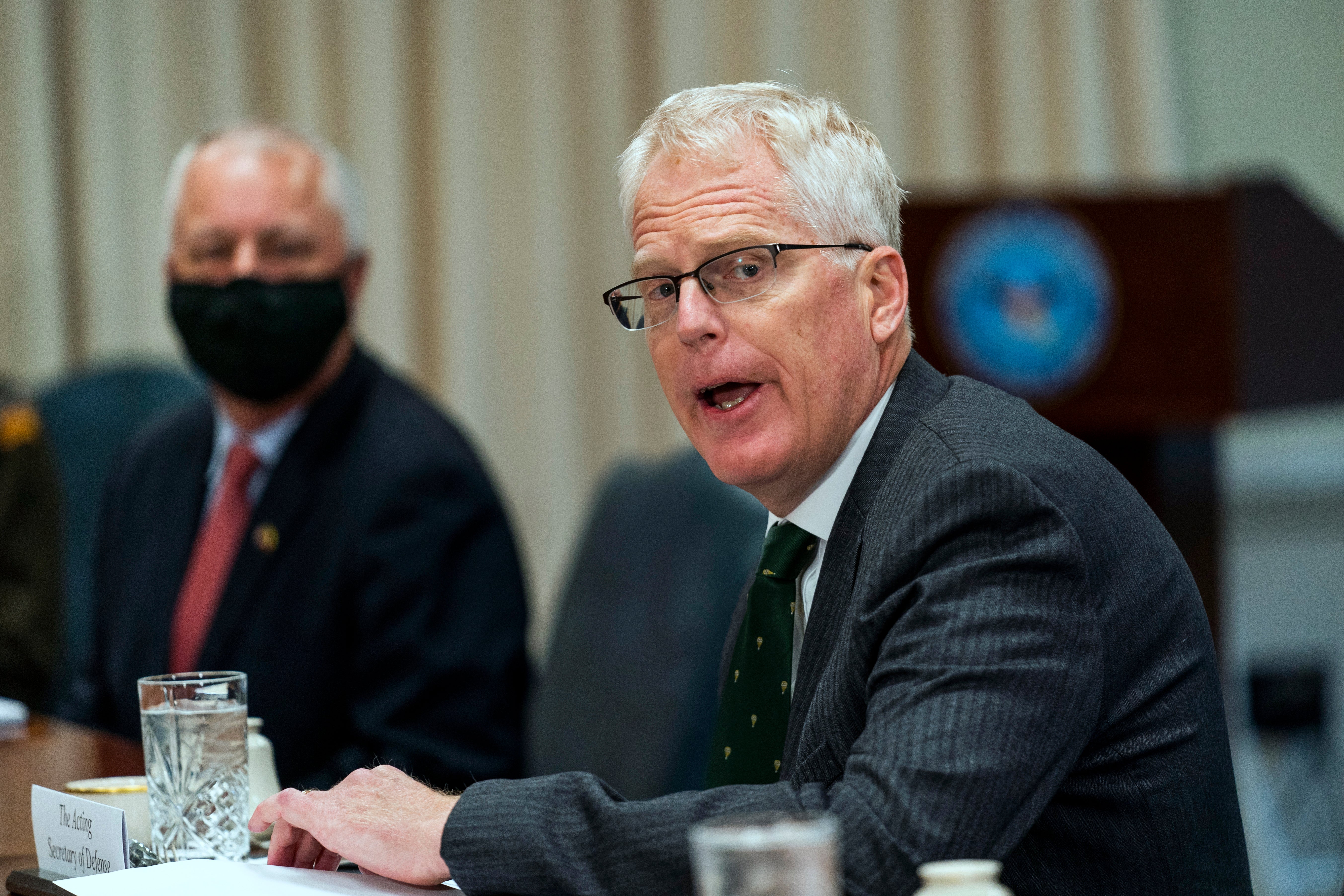NATO, acting US Pentagon chief discuss Afghanistan
NATO Secretary-General Jens Stoltenberg has spoken to the new acting U.S. defense secretary about the alliance’s commitment to stay in Afghanistan as long as necessary, his spokeswoman said Monday

Your support helps us to tell the story
From reproductive rights to climate change to Big Tech, The Independent is on the ground when the story is developing. Whether it's investigating the financials of Elon Musk's pro-Trump PAC or producing our latest documentary, 'The A Word', which shines a light on the American women fighting for reproductive rights, we know how important it is to parse out the facts from the messaging.
At such a critical moment in US history, we need reporters on the ground. Your donation allows us to keep sending journalists to speak to both sides of the story.
The Independent is trusted by Americans across the entire political spectrum. And unlike many other quality news outlets, we choose not to lock Americans out of our reporting and analysis with paywalls. We believe quality journalism should be available to everyone, paid for by those who can afford it.
Your support makes all the difference.NATO Secretary-General Jens Stoltenberg has spoken to the new acting U.S. defense secretary about the alliance’s commitment to stay in Afghanistan as long as necessary, his spokeswoman said Monday, amid speculation that President Donald Trump might order a rapid withdrawal of U.S. troops in the country.
NATO spokeswoman Oana Lungescu said Stoltenberg held talks with Christopher Miller on Friday about the 30-nation U.S.-led military alliance’s “agenda, including the situation in Afghanistan,” and that “NATO’s position hasn’t changed” on its security role in the conflict-ravaged country.
“No NATO ally wants to stay any longer than necessary. At the same time, we want to preserve the gains made with such sacrifice, and to ensure that Afghanistan never again becomes a safe haven for terrorists that can attack the United States or any other NATO ally,” Lungescu said.
NATO took charge of the international security effort in Afghanistan in 2003, two years after a U.S-led coalition ousted the Taliban for harboring former al-Qaida leader Osama bin Laden. In 2014, it began to train and advise Afghan security forces, but has gradually pulled troops out in line with a U.S.-brokered peace deal.
“We support the Afghanistan peace process, and as part of it, we continue to adjust our presence,” Lungescu said. She noted that NATO has reduced its presence “to under 12,000 troops, and more than half of these are non-U.S. forces.”
Americans often make up at least half of the troops participating in the Resolute Support mission. Around 8,000 U.S. troops were involved in August. NATO allies and their partners rely on U.S. air power, transport, logistics and medical assistance to operate. It’s unlikely that the mission could function or even leave without significant U.S. help.
Lungescu said that NATO allies “will continue to consult on the future of our mission in Afghanistan, and we stand ready to further adjust our mission, in a coordinated manner and based on conditions on the ground.”
Violence and chaos have increased in Afghanistan in recent months even as government negotiators and the Taliban are meeting in Qatar to find an end to decades of relentless war in Afghanistan. The two sides have made little progress.
At least two government security troops were killed and four others wounded on Friday in a suicide car bomb attack in Kabul. No one immediately claimed responsibility, though suspicion immediately fell on the Taliban.
Trump tweeted on Oct. 7 that “we should have the small remaining number of our BRAVE Men and Women serving in Afghanistan home by Christmas.” The U.S. armed forces were blindsided by the claim, as were NATO allies.
Last week, Trump fired U.S. Defense Secretary Mark Esper, installing three staunch loyalists in top defense jobs, with Miller, who mostly recently served as director of the National Counterterrorism Center, as acting defense secretary.
Esper had worked with military leaders to talk Trump out of complete troop withdrawals from Afghanistan and Syria.